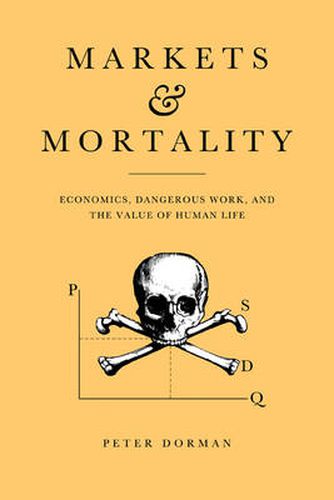Readings Newsletter
Become a Readings Member to make your shopping experience even easier.
Sign in or sign up for free!
You’re not far away from qualifying for FREE standard shipping within Australia
You’ve qualified for FREE standard shipping within Australia
The cart is loading…






In this book the author examines and ultimately rejects the conventional economic view that workers who have more dangerous jobs accept their risks voluntarily and are compensated through higher wages. In doing so, he attacks widely used techniques for assigning a monetary value to human life for cost-benefit analysis and other purposes. Arguments are drawn from the history of occupational safety and health, econometric analysis of wage and risk data, and formal models of the labor market. In place of the conventional view, Peter Dorman proposes a view based on new work in decision theory (thick rationality) and the theory of repeated games. These insights are combined with comparative policy analysis to support an approach to risk that promotes both regulatory effectiveness and democratic values. Despite its technical content, the book is written in highly accessible style, and is concerned with matters of general interest in the development of critical social science.
$9.00 standard shipping within Australia
FREE standard shipping within Australia for orders over $100.00
Express & International shipping calculated at checkout
In this book the author examines and ultimately rejects the conventional economic view that workers who have more dangerous jobs accept their risks voluntarily and are compensated through higher wages. In doing so, he attacks widely used techniques for assigning a monetary value to human life for cost-benefit analysis and other purposes. Arguments are drawn from the history of occupational safety and health, econometric analysis of wage and risk data, and formal models of the labor market. In place of the conventional view, Peter Dorman proposes a view based on new work in decision theory (thick rationality) and the theory of repeated games. These insights are combined with comparative policy analysis to support an approach to risk that promotes both regulatory effectiveness and democratic values. Despite its technical content, the book is written in highly accessible style, and is concerned with matters of general interest in the development of critical social science.